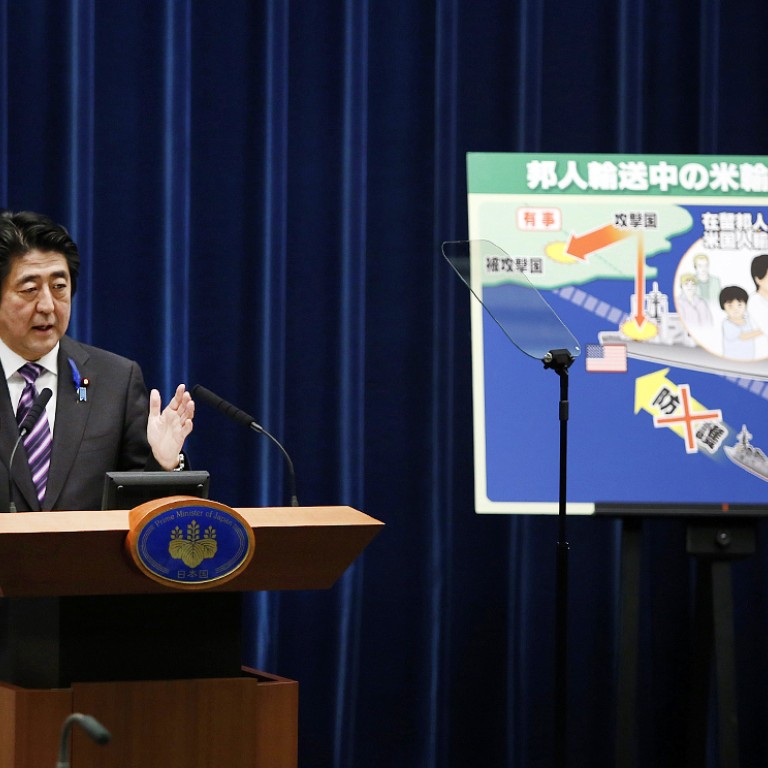
Update | Japan approves end to ban on military fighting overseas in victory for Shinzo Abe
The reinterpretation of the constitution is seen by many as a shift away from post-war pacifism
Tokyo yesterday lifted a 60-year-old ban that has kept its armed forces from fighting abroad.
It was a move seen by many as the biggest shift away from pacifism since the end of the second world war and a victory for Prime Minister Shinzo Abe as he strives to make Japan a "normal country" again.
The decision to reinterpret the constitution is likely to irritate Japan's neighbours and further divide North Asia. But it will garner support from countries in Southeast Asia seeking an alternative counterbalance - in addition to the United States - to an increasingly assertive China, analysts say.
Watch: Japan expands scope of military despite public anger
The resolution passed by the Japanese cabinet permits the use of a minimum amount of force to defend another country under attack if that nation has close ties with Japan. That right may only be exercised if the attack poses a threat to Japan's existence and if there is no other way of protecting Japanese people.
Beijing was quick to respond, saying Tokyo should refrain from undermining regional peace and stability as well as China's sovereignty and security interests.
"For a long time, the Japanese government has been stirring up trouble on historical issues," Foreign ministry spokesman Hong Lei told a regular press briefing.
"It's only natural for us to wonder if Japan is going to change its path of peaceful development that it has been long pursuing after the [second] world war."

China and South Korea have also been angered by the revisionist views of Abe and his close associates concerning Japan's second world war atrocities. Leaders from both countries have refused to hold bilateral summits with Abe since he returned to power in December 2012.
Lin Xiaoguang, an international relations expert at the Communist Party's Central Party School, said China was likely to step up its propaganda against Japan about wartime history in response.
"Historical documents containing details of Japanese behaviour during the second world war may be released," Lin said.
"Chinese courts may also accept lawsuits against Japanese concerning wartime grievances."
Authorities in South Korea, however, would be forced to give only low-key responses despite government and public concerns over Japan's intention, said Kim Chul-woo, a senior fellow with the Korea Institute for Defence Analyses.
"Because of the confrontational posture from North Korea, the security apparatus in South Korea is [keeping a] low profile ," Kim said. "And the US' strong support for Japan to change its policy has created an awkward situation for the [South] Korean government, particularly for the defence officials. It's very hard for them to openly denounce this."
Most other governments in Asia would quietly welcome a more "normal" Japan, which could use its advanced military to help build their capabilities or offer support in a crisis, said Rory Medcalf, director of the International Security Programme at the Lowy Institute in Australia.
Southeast Asian countries, in particular the Philippines and Vietnam, would hope the shift could allow Japan's maritime self- defence force to play a bigger role in stabilising the South China Sea, where their sovereignty disputes with China are intensifying, said Richard Heydarian, a political science lecturer at Ateneo De Manila University.
"There is a lingering concern over US strategic retrenchment in the region," he said. "So people are looking for an alternative counterweight to China."
Under Abe, Japan has increased military spending and relaxed curbs on military exports.

